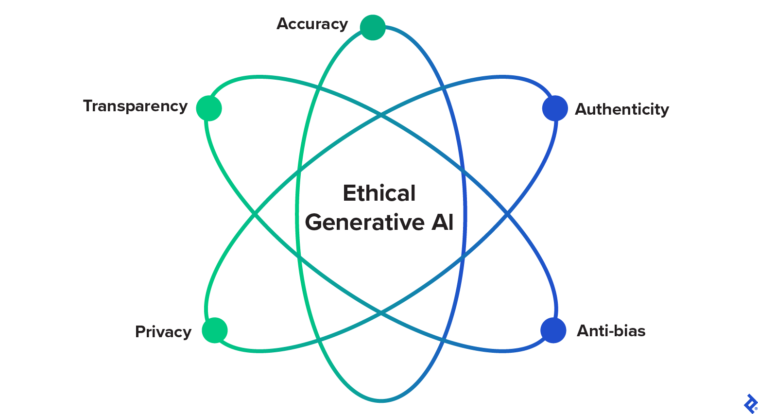
Opinion Editorial: Ethics of Generative AI on Communications
Introduction
Generative Artificial Intelligence (AI) has come a long way, with the development of language models such as OpenAI’s GPT-3, which can create highly convincing and coherent pieces of text. While these advancements have revolutionized the field of communications, it is important to consider the ethical implications of using AI-generated content in this context.
Privacy Concerns
With the creation of AI-generated text, there is a chance that private and confidential information might be leaked, especially if the system has access to confidential data. This can lead to serious legal consequences and may affect public trust, making it important to have privacy protection laws in place.
Accountability and Responsibility
As AI-generated content is still in its early stages, it is necessary to consider the issue of accountability and responsibility when it comes to the consequences of such content. Here, we need to ensure that any AI-generated content is adequately labeled and we have an understanding of where the content came from.
Unintended Consequences
AI-generated content may not always be appropriate, and there is a risk of unintended consequences. For example, an AI-generated tweet may go viral, potentially damaging someone’s reputation or creating chaos. Thus, it is important to have legal frameworks and moral guidelines in place to avoid such risks.
Authorship, Plagiarism, and Intellectual Property Rights
AI-generated text can present challenges for the concept of authorship, plagiarism, and intellectual property rights. If AI-generated text is not considered in the same way as text generated by humans, we may face difficulties in protecting the rights of the original authors, resulting in legal disputes. Therefore, it is important to consider the legal implications of AI-generated content and establish clear guidelines and policies.
Conclusion
As communicators, we are responsible for ensuring that content is ethical, trustworthy, and reflects our values and beliefs. With the emergence of AI-generated content, we need to re-evaluate our approach to communications and establish ethical guidelines and legal frameworks to ensure that we are accountable and responsible for the consequences of the technology we use.
Originally Post From https://www.thewesterlysun.com/daily-news-alerts/uri-study-set-to-examine-the-ethics-of-generative-ai-on-communications/article_6ca3b660-2527-11ef-b941-333484476b28.html


